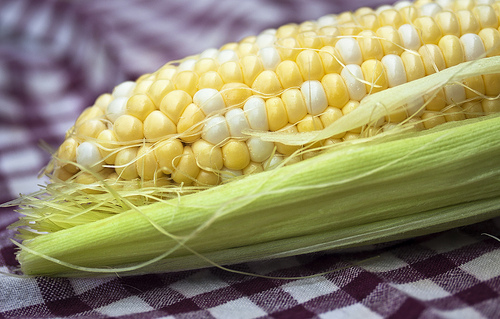The Department of Agriculture (DA) will respect the decision of farmers to plant genetically modified (GM) corn even as the country is seen to export 100,000 metric tons (MT) of corn this year owing to increased production from GM corn.

Farmers who choose to plant GM corn will not be stopped by the government.
“We don’t really have any problem with GM corn except that those in Negros want a ‘no GM policy.’ But there are farmers that are open to it. Farmers in Isabela are open to it. We give importance to their decision. That’s their call,” said DA Secretary Proceso J. Alcala told a press briefing.
DA is taking the position of allowing field testing of GM crops so as to allow technical experts to prove its safety for human and the environment.
“There’s a program on Bt talong and Golden Rice that scientists study. For as long as testing is within contained environment, it’s not right for us to stop it,” said Alcala.
Any potential positive development from these tests may be prevented from benefiting human if field trials are stopped.
“At the end of the day, if we don’t give them a chance to prove it, we’re stopping development for the future. If we didn’t allow them to produce diatabs, it’s like saying we should only use charcoal (uling) to cure it (diarrhea),” said Alcala.
DA, though, will also respect groups that choose not to adopt GM.
An estimated 750,000 bags of GM Bt corn have been sold over the last one year season representing 750,000 hectares of Bt corn land. This may already represent around 50 percent of some 1.3 million hectares of land for yellow corn.
With Bt corn’s yield reaching to seven to 10 MT per hectare, double the yield from conventional corn, Bt corn has been recognized to contribute to the country’s corn sufficiency.
“Before we only had 4.5 million tons of corn production, and it grew to seven million tons because of adoption of this technology. Our population is growing by two percent annually. We will have 10 million more mouths to feed in a few years. Our land is not increasing. So what we can do is adopt the technology,” said Philippine Maize Federation Inc. (PMFI) President Roger Navarro.
For this year, the country is even expecting an even higher production of an all time high 8.213 million MT. This creates a surplus of 234,000 MT. But to be certain about quality to be exported, the sector may only export around 100,000 MT.
While most people recognize the operative word “respect” in people’s choice, this is not always happening.
“We have to respect each other’s choice. But others don’t have respect. Some have destroyed GM plants. Is that respect?” said Navarro in the same press briefing.
And even those that don’t want GM and claim that they have an alternative to import non-GM foods are faced with a dilemma.
“They say their alternative is to import. Are you sure you’re not importing GM? In Negros where they won’t plant GM, they are a capital for chicken (Inasal) that has soy sauce. That soy sauce has GM. I hope we will open our eyes toward food security,” said Navarro.
People in the past have always considered planting as a drudgery.
But with Bt corn, farmers no longer find planting a terribly laborious work. They can omit much of spraying and even of tilling land similar to how Calata Corp. now practices “no tillage” in a 300-hectare land in Isabela as a result of use of Bt corn.
“We had mindset that planting is never fun. It’s negative. We want to turn this mindset around—that planting corn is always fun. We’re giving dignity to our farmers through Bt corn because they feed the nation and nurture the soil,” said Navarro.
While some feed companies still did not believe that corn sufficiency in the country is possible, these companies chose to import a small volume of the low-tariff Minimum Access Volume (MAV) in 2012.
The import volume under MAV in 2012 was only 91,000 MT even if allowable MAV was 216,000 MT.
This year, no company imported even under MAV that has tariff of 35 percent, lower than the outside MAV tariff of around 50 percent.
“Our computation in our corn program is we have excess of 200,000 tons. Last 2012 there are those that imported corn because big companies didn’t want to gamble. They imported a little quantity. Now no one imported because they now believe we could attain self sufficiency,” said Alcala.
Starting May this year, the country has been able to export corn silage to South Korea. The country has so far exported 467 MT of corn silage.
“We used to import corn and corn substitutes at one million tons yearly. But GM (genetically modified) corn is enabling us to export. Bt corn is clean, and its grains are bigger. So feed suppliers in Korea want it,” said Ploughshares Inc. President Butch Umengan.
###
For any questions, please text 0921-338-3816, 0916-266-6604.

thanks for sharing this relevant post, Have added you on my blogroll list. I would be grateful if you can leave a comment as well in <a href="http://www.juanblogs.com">juanblogs.com</a>. Thank you, take care!